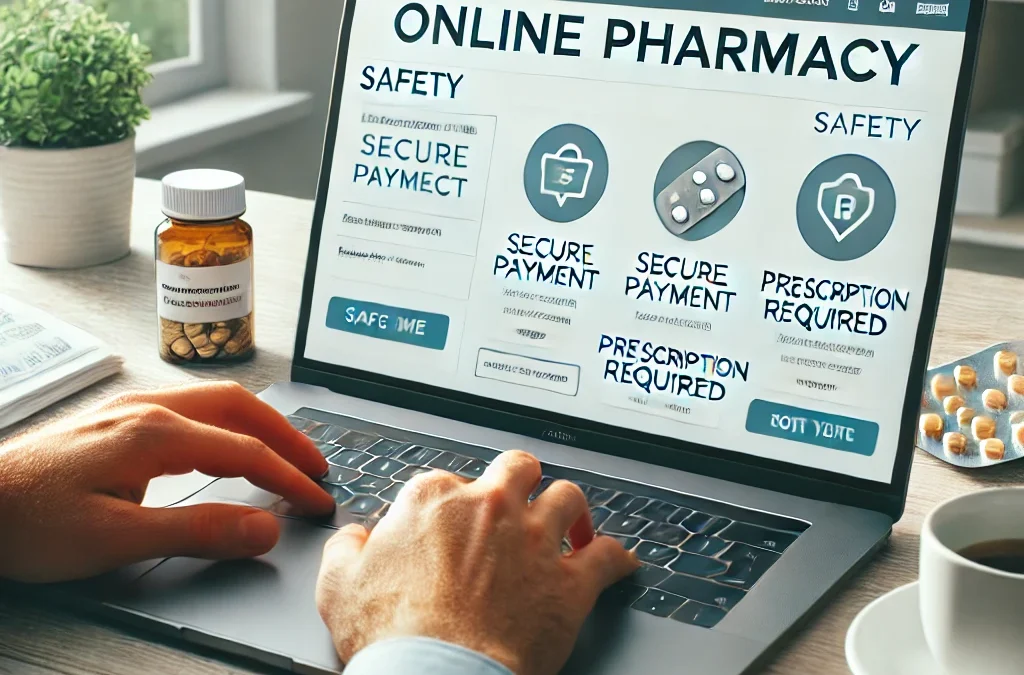10 Questions to Ask Before Ordering Medications Online
With the increasing popularity of online pharmacies, it’s easier than ever to order prescription medications from the comfort of your home. However, before you click “buy,” it’s essential to ensure you’re dealing with a safe, legitimate, and trustworthy pharmacy. Asking the right questions can help protect your health and ensure you’re making informed decisions. Here are 10 questions to ask before ordering medications online:
1. Is the Pharmacy Licensed and Accredited?
The most critical factor in determining whether an online pharmacy is legitimate is checking its licensing and accreditation. In the U.S., look for accreditation from the National Association of Boards of Pharmacy (NABP) or its VIPPS (Verified Internet Pharmacy Practice Sites) certification. If the pharmacy is not licensed or accredited, it’s a significant red flag.
2. Do They Require a Prescription from a Licensed Doctor?
A legitimate online pharmacy will always require a valid prescription from a licensed healthcare provider. If a website offers to sell you prescription drugs without a prescription, it is likely not a safe or legitimate source. Avoid any pharmacy that makes it easy to obtain medication without proper medical evaluation.
3. Is There Access to Licensed Pharmacists?
A reputable online pharmacy will provide access to licensed pharmacists who can answer your questions about medications, potential side effects, and drug interactions. Look for a pharmacy that offers clear ways to contact a pharmacist, either through phone, chat, or email.
4. What Are the Pharmacy’s Privacy and Security Policies?
Your personal health and financial information should always be protected when ordering medications online. Verify that the website uses encryption (look for “https” in the URL) and has clear privacy and security policies in place. Never trust a pharmacy that doesn’t explicitly state how they safeguard your information.
5. Are the Prices Too Good to Be True?
If the prices seem unusually low, it might be a sign that the pharmacy is selling counterfeit or substandard medications. While online pharmacies can offer savings, particularly for generic medications, beware of prices that are far below the market average. It’s essential to strike a balance between affordability and safety.
6. How Are Medications Packaged and Delivered?
Ask about the pharmacy’s delivery process. Legitimate pharmacies will use secure, discreet packaging to ensure that your medications arrive in good condition and are handled with care. Additionally, confirm that they offer tracking information so you can monitor the status of your delivery.
7. Does the Pharmacy Offer Generics and Brand Name Options?
Many online pharmacies provide both generic and brand-name medications. If you prefer one over the other, it’s important to ask what options are available. Generics can be a cost-effective alternative, but always confirm that the generic versions offered are FDA-approved.
8. What Is Their Return and Refund Policy?
Most pharmacies do not allow returns on prescription medications for safety reasons. However, a trustworthy pharmacy should still have a clear policy on refunds or exchanges in case of incorrect shipments, damaged packages, or other issues. Make sure you understand the process before placing an order.
9. Are There Reviews or Testimonials from Other Customers?
Customer reviews can provide valuable insight into the reliability of an online pharmacy. Look for feedback on the pharmacy’s service, delivery speed, customer support, and medication quality. Be cautious of websites with overwhelmingly positive or excessively negative reviews, and consider using independent review sites for unbiased opinions.
10. Can I Confirm the Source of the Medications?
Legitimate online pharmacies should clearly state where their medications are sourced from and whether they are FDA-approved or meet local regulatory standards. If the pharmacy doesn’t disclose where its medications come from or provides vague information, this could be a warning sign that they’re selling counterfeit drugs.
Conclusion
Ordering medications online can save you time and money, but it’s essential to do your due diligence before making a purchase. By asking these 10 questions, you can protect yourself from counterfeit drugs, identity theft, and unsafe practices. Always prioritize your safety and health, and don’t hesitate to consult with your healthcare provider before making any decisions about ordering prescription medications online.


